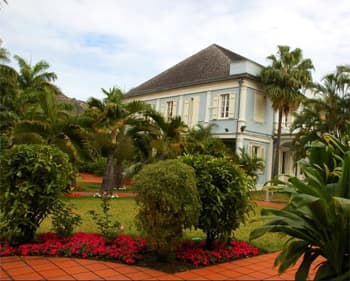Discover the Heritage of Reunion island

Even though it was already listed on a few maps from the ninth century, Reunion Island remained a real "desert island", a virgin land that had never been populated, until 1649. Hence the Reunionese people haven't existed for so long, and no ethnic group can claim this island more than another. This is perhaps what contributes to today's social harmony, an example of tolerance for the whole world.
Visit to do

The history of Reunion has forged a mixed population, which claims its Creole identity with all the various shades resulting from the melting pot of three continents and different religions. Throughout the island, you can visit temples, pagodas, churches and mosques, but also old masters'mansions on large plantations, sugar cane plants turned into museums or still active, rum distilleries, large notables'townhouses now open to the public, historical monuments in memory of the East India Company, properties specialized in the cultivation of vanilla, of bananas, botanical trails or gardens full of plants and endemic species, and of course quality museums that will enlighten you on the history of this unique island.
Reunion Island, a melting pot par excellence, is a cosmopolitan destination that offers a diverse cultural heritage: museums of course, but also historic streets and villages, places of worship and old factories.
Sugarcane, coffee, vanilla, honey, essential oils (geranium, vetiver, ylang-ylang), tropical flowers and fruits (mangoes, bananas, lychees ...), chayotes, vine ... Come and see this production on farms, orchards and cooperatives!
The volcanic origin of Reunion provided fertile land favourable to the cultivation of sugar cane, since the mid-nineteenth century. On the island, two factories still transform the cane into sugar, rum and energy. To the delight of onlookers, they open their doors to the public, as do some bottling companies and other small distilleries..
The registration of "Pitons, cirques and remparts of Reunion island" as a World Heritage Site by Unesco in 2010 demonstrates the undeniable botanical interest of this island in the Indian Ocean. The islanders, who love nature and are often anxious to preserve it, will share these natural treasures by guiding you along the wild paths or in gardens with native or imported plants that are carefully documented and presented.




